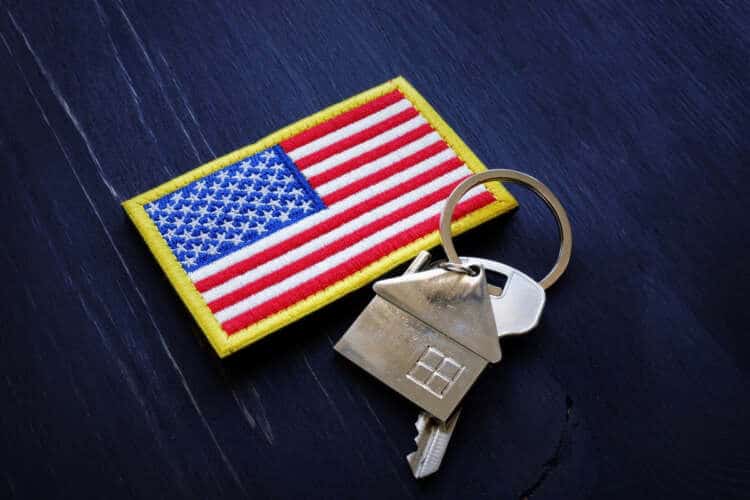VA Loan Benefits for Disabled Veterans
Updated: August 31, 2023Veterans with service-connected disabilities qualify for benefits to make homebuying potentially more affordable. A disability rating, whether 10 percent or 100 percent, will not affect a Veteran’s eligibility for a VA loan.
Benefits Available for Veterans Living With Disabilities
- A Veteran with a disability rating does not have to pay the VA loan funding fee
- Veterans can use their disability compensation toward their monthly income
- Veterans with service-connected disabilities may get property tax exemptions
- Several grants and programs available to Veterans living with a disability
Benefits Breakdown
Now that we’ve listed some of the benefits, let’s break them down a little better.
VA Loan Funding Fee Exemption
If living with a service-connected disability or illness, a Veteran with a disability rating will not be required to pay the VA loan funding fee, which is thousands of dollars. Currently the VA loan funding fee is 2.15% for a Veteran who puts no money down.
A Veteran’s VA records must show their disability rating, and show in their VA Certificate of Eligibility for a VA mortgage. Active-duty Purple Heart recipients may also qualify for the VA loan funding fee exemption but must provide proof of their Purple Heart before loan closing.
Note: It is a Veteran’s lender’s job to note your official status to determine whether they must pay the fee and process the VA mortgage loan. The lender will need to verify the Veteran’s status by reviewing:
- VA Form 26-8937 Verification of VA Benefits, showing an exempt status.
- A copy of the original VA notification of disability rating and documentation of the Veteran’s service retirement income (If they accepted service retirement pay instead of VA compensation).
Disability Compensation
Another benefit available for Veterans living with a service-connected disability or illness is they can use their disability compensation as effective income. When borrowing, lenders will need to be sure individuals have an established consistent income. The disability compensation will go toward that process in addition to any other monthly income.
Property Tax Exemption
Disabled Veterans may also be eligible for certain property tax exemptions. The types of benefits available vary due to the differences of tax laws in different states.
Grants & Programs For Disabled Veterans
|
Helps a Veteran homeowner pay for specific changes to make the home more accessible for the service member based on medical and accessibility needs related to a qualifying medical condition(s). |
|
|
Helps Veterans buy, build, or modify a permanent residence or the residence of a qualifying family member where the Veteran will live full-time. |
|
|
Helps pay for improvements to make homes more accessible for disabled veterans, this grant does not have a list of qualifying medical conditions or injuries. *Requires written documentation from physician |
|
|
Designed to help pay for a Veteran living temporarily in a family member’s home which must be modified to become more adaptable for the Veteran. |
VA Home Loan Options for Disabled Veterans With Bad Credit
The VA doesn’t have a minimum credit score requirement, but most lenders do for a VA Loan. Most won’t lend to someone with a credit score below 620. Some lenders offer services that work with people to build their credit scores.
VA Home Loans for Disabled Veterans Who Are Rated Incompetent
Suppose a Veteran is ruled incompetent due to health-related issues and cannot manage their benefits. In that case, the VA will appoint someone to receive and manage their disability compensation. To get a VA loan, the VA-appointed individual would need approval from the VA to close on a home. The VA review process, which can take a few months to complete, is aimed at ensuring the decision benefits the Veteran.
VA Disability Ratings Updating After A Loan Closes
Assume a Veteran is awaiting the results of their disability claim and ends up paying the VA loan funding fee. In that case, they may get a refund if their effective date of disability is set at a time before the VA loan is closed.
VA Loan Funding Fee Refund if Exemption Status Confirmed Later
Once the effective date of disability is set, the borrower would need to reach out to the VA to get your VA loan funding fee refunded.
Most Popular VA Loans and Mortgages Articles

VA Home Loan Guide

VA Loan Calculator

How to Refinance a VA Loan

VA Loan Certificate of Eligibility (COE)

2024 VA Loan Limits by County

Best VA Loan Lenders































































